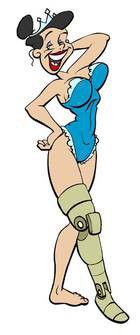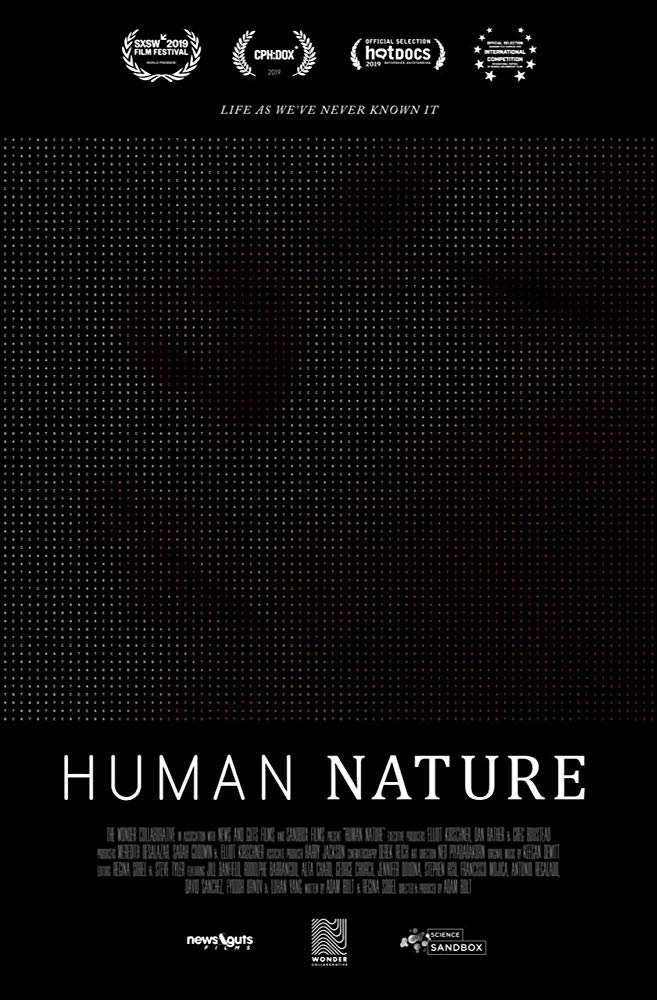
Thank you for taking your time to chat with me today. Congratulations on-
Bolt:
Thank you.
Kellerman:
There's a lot to digest in this documentary. Your background, you've worked, obviously, in documentaries before, but as a producer and editor. This is your first-
Bolt:
This is my first directing, feature directing.
Kellerman:
Tell me about that, and then also in the context of all of this information.
Bolt:
Yeah, what do you want to know?
Kellerman:
How do you dive in? What kind of research did you do initially, and how do you wrap your head around all this and distill it in a way that audiences can understand it?
Bolt:
It was hard. I don't have a science background other than being a science nerd in high school. So making this film was a crash course in all of this stuff. Actually, one of the first things I did was, I took a little short class at this place called Genspace which is like a community biology lab in Brooklyn-
Kellerman:
Really? Cool.
Bolt:
... and actually got some hands-on experience like using test tubes and pipetting and stuff just to get a feel for what that world is like. And we spent probably six months at the beginning not filming anything, just talking to scientists, hanging out at labs, reading a lot of stuff about this. One of our producers, Sara, Sara Goodwin, she's a PhD, cell biologist who actually quite accomplished. She discovered a protein in her post doc, which is a big, in science, that's a big thing. She got to name a protein, and she named it after a Harry Potter thing. It's perfect, it's that intersection of storytelling and science that the whole film tried to embody. So she helped, she and I were on the phone constantly, and she would read these papers and help me digest them and understand them. I think CRISPR is just an amazing story, how it was discovered with this idea of these relatively obscure scientists in a relatively obscure discipline stumbling on something, discovering something, that had these enormous implications and then for some of them, it changed their lives and some of them became relatively famous.
Kellerman:
Right, the rock stars of genetics.
Bolt:
Rock stars of CRISPR. And also then feeling responsibility for this thing that they're put out in the world that has tremendous potential for good and bad, and wrestling with that. So we really wanted to capture that story, not just teach people what CRISPR is, but take them on this cool journey through the story. And we wanted that story to be told by first person people, not like explainers, but by the scientists themselves.
Kellerman:
Yeah, because you have the people that were on the forefront.
Bolt:
Exactly.
Kellerman:
Were you so glad that they were eloquent and could distill it for every audience ... or were there interviews where you're like, "Whoa, whoa," like you're going to have to break that down a little more simply.
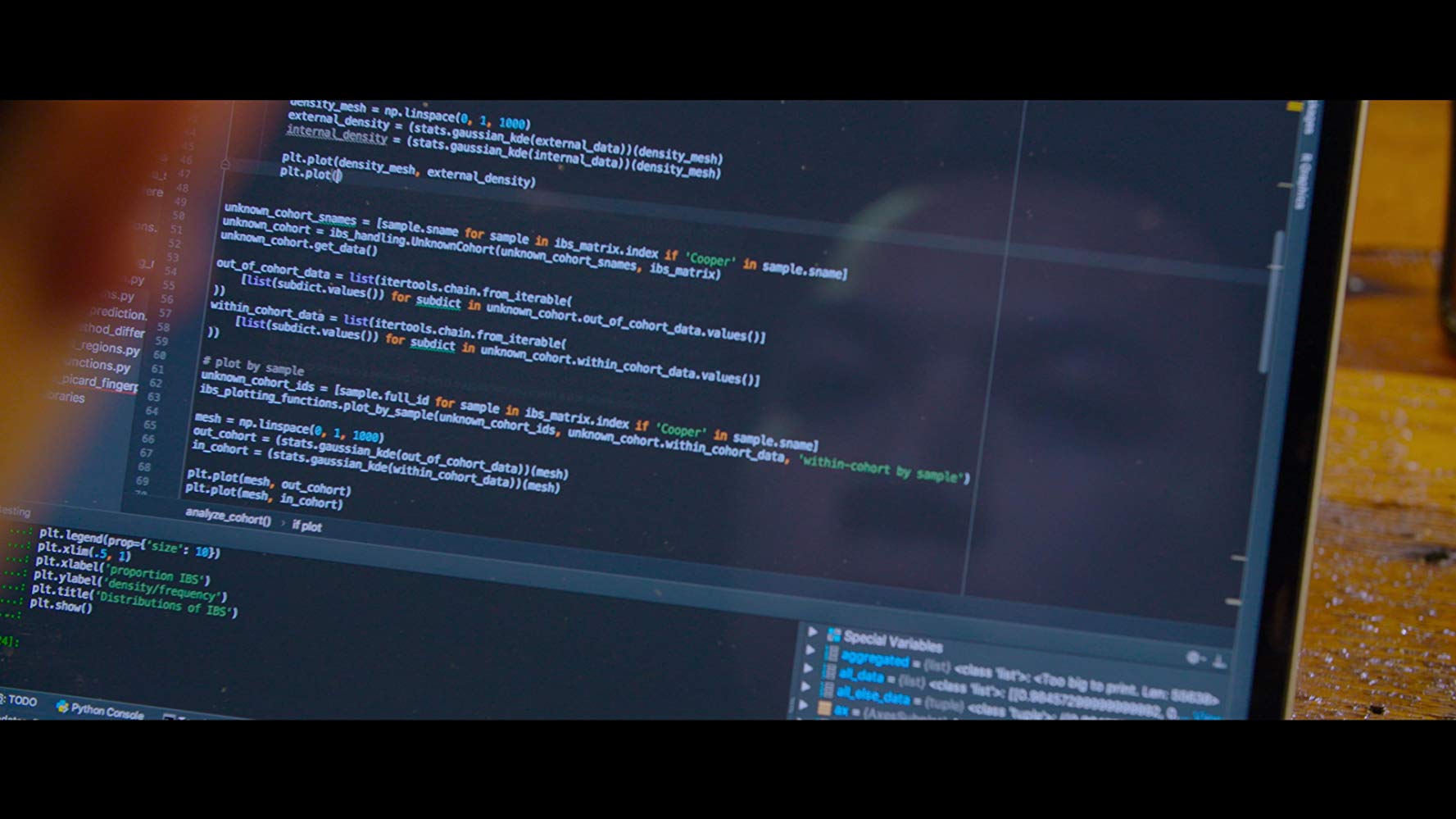
Bolt:
What I found is that, I think, scientists, a lot of them are a little cautious when they're being interviewed. Either they've been told like, "Hey, you've got to really dumb this down," or just being a little worried that whatever they say is going to get taken out of context or not presented in all of its complexity.
Kellerman:
Plus in their discipline, they're used to all their work being thoroughly vetted.
Bolt:
It's a very different thing to sit down for an interview for two hours and then it goes off and they have no say, "Is it going to end up getting the facts wrong?" So a big part of this was building trust with the scientists and having Sara be part of it and also. Another person who was involved was Ron [sorry- didn't get his last name!] who's a huge, member of the National Academy, among scientists and stuff, everyone knows who he is. He helped introduce us to people and say like, "These guys are going to do a responsible job." When we sat down for these interviews, I wanted the scientists to feel like I'd already done my homework. So I tried to ask questions that made it clear that I already knew what CRISPR was. I think I saw that put them at ease a little bit. They're not just like, "Okay, it's like scissors." It also made them feel like the nuances of it were going to be communicated, it wouldn't just be like fear mongering, that obviously we were going to ... and actually the scientists were really eager to explore what those negatives-
Kellerman:
Were they? Was there any reluctance?
Bolt:
No, and actually that was one of the things that surprised me when we first started looking into doing a film about CRISPR. We had a meeting with a few, with Jennifer Doudna and George Church and George Daley, who's the Dean of Harvard Medical School. And Rodolphe Barrangou, who's in the film, who's one of the younger guy. And I was really expecting to have to be like, "Well, what about ... ", this or that. But it was really, they were leading that conversation. And actually, they were ... Jennifer in particular, has been really active in trying to get these ethical, comfortable deliberations and getting the public engaged.
Kellerman:
Right. She's sort of ultimately responsible in a way, I guess.
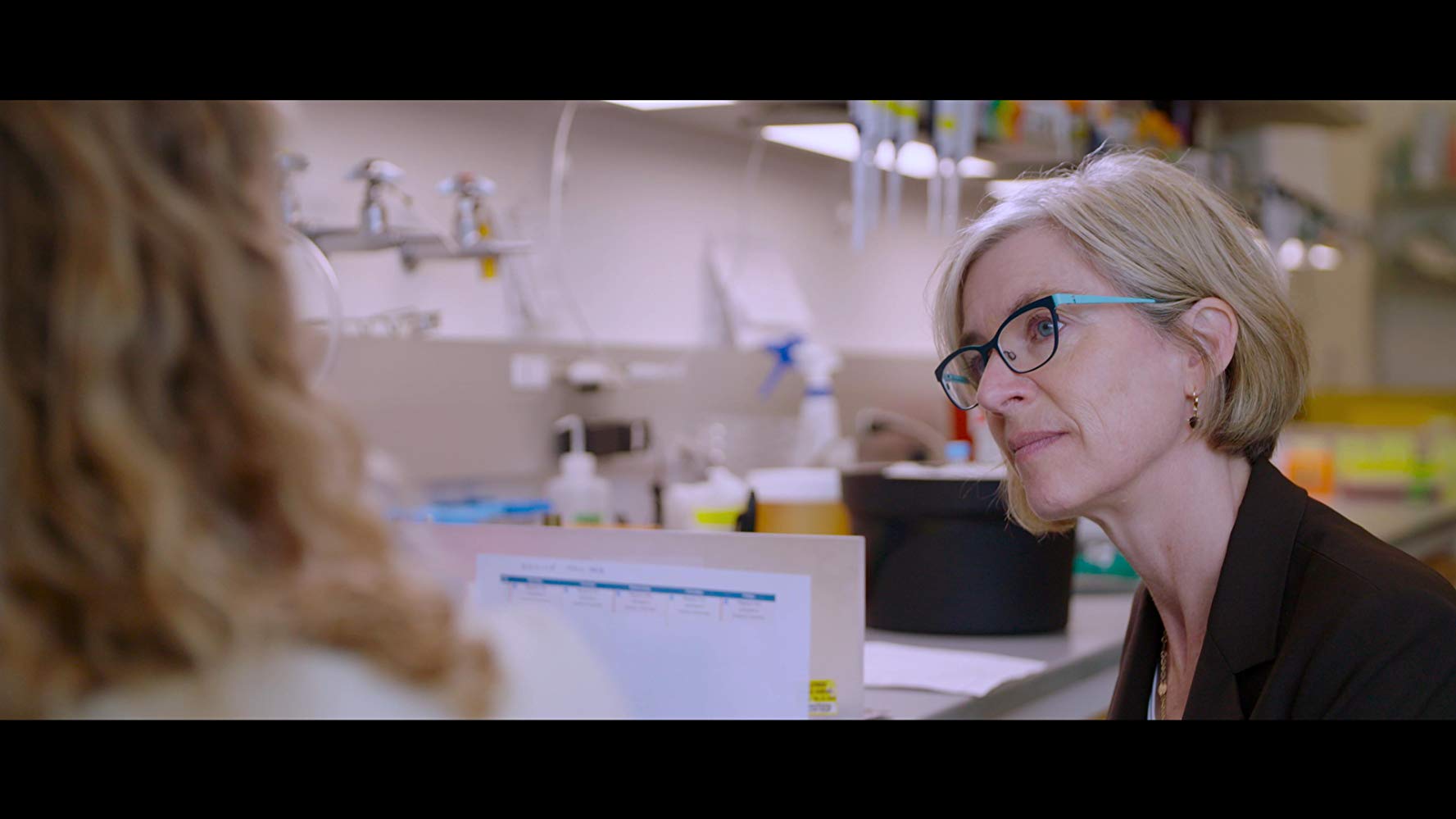
Bolt:
Actually, one of the things that kicked up this project is Dan Rather, who's our Executive Producer.
Kellerman:
Yeah, I want to ask about him as an executive producer. Yeah, talk about him and his involvement.
Bolt:
I was an editor for a long time, and I was an editor on his show, Dan Rather Reports, here and there over the years. And our other executive producer Elliot [Kirschner] worked with him very closely for years. Elliot and Dan were working on this series of interviews with scientists. Just held conversations with scientists, and they interviewed Jennifer three or four years ago, before CRISPR had really hit public consciousness. And Jennifer talked about, in that interview, she talked about making these discoveries in her lab that are earth-shattering, and then going to her kids PTA meeting at the end of the day. She's like, "Oh, my gosh, nobody knows what's going on."
Kellerman:
No one knows, right, there's a major breakthrough.
Bolt:
She really, to her credit, started that process of [trying to open the ethical discussion] ... so, I think, this film, once we had trust, I think this film felt like it was part of that.
Kellerman:
I guess Rather thought this was a good opportunity to expand upon his segment?
Bolt:
Yeah, he and Elliot were like, "Whoa, this is a huge story and what if we made a film?"
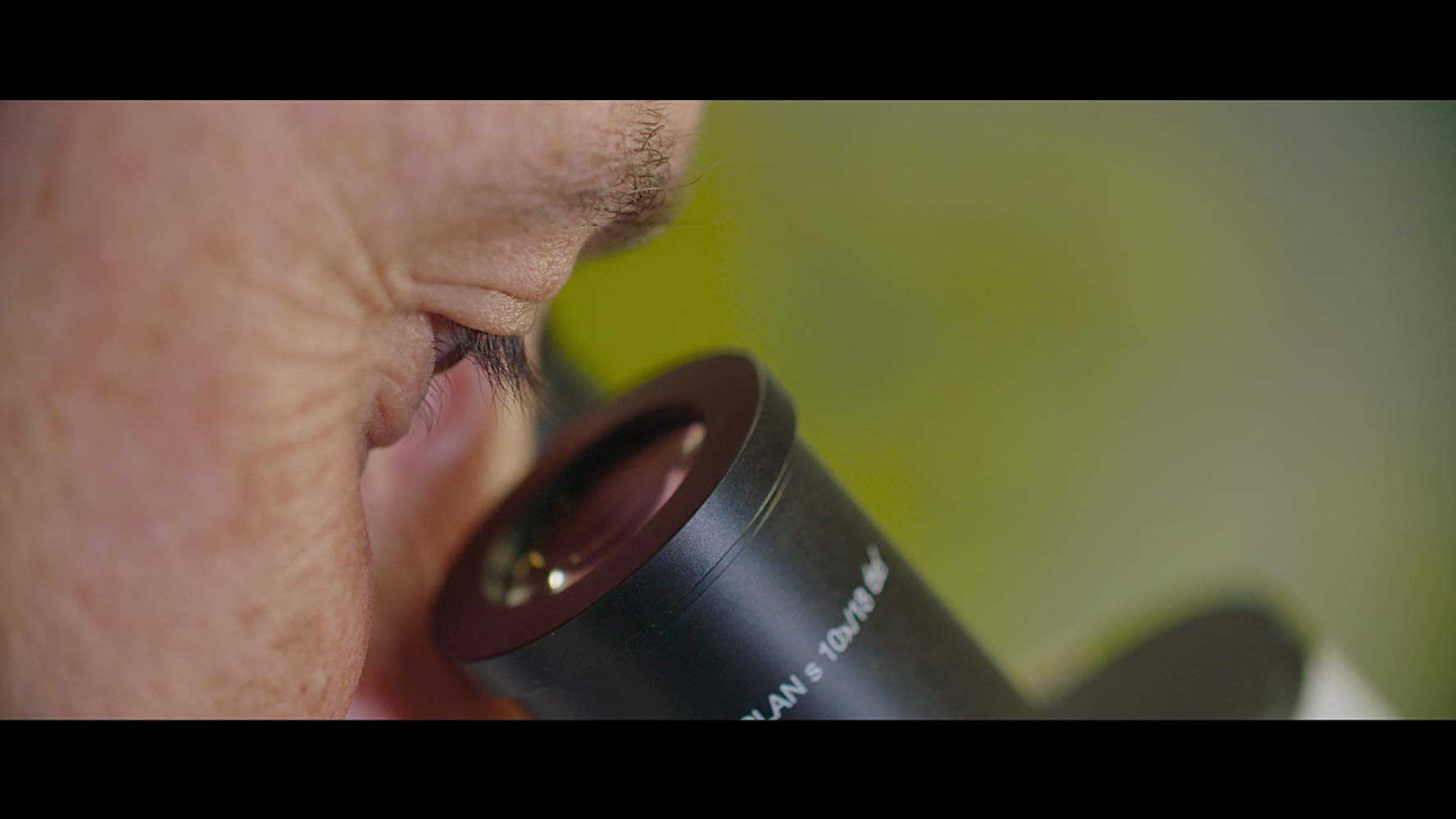
Kellerman:
Yeah, definitely a bigger story than just a short little segment. Can you talk a little bit about your ... because clearly you don't want your film to just be a talking head documentary so you have included various animations to flesh out description. As well as the Ford assembly line footage. Can you talk about that? Was there other stock footage you considered or was it just that you can draw comparisons between DNA and the assembly line, that sort of thing?
Bolt:
Yeah, well, first the graphics. We knew from the beginning that was going to be a huge, huge part of it because we're making a film about something that's invisible, so what do we point our cameras at? Our art director and graphics artist, is this guy named Ned Piyadarakorn. He's actually an engineer, but he studied engineering and then went into graphics, so he understands the technical, but is an artist. He was able to really create this, I think, immersive visual-
Kellerman:
Conceptualize visually.
Bolt:
Yeah, we didn't want it to feel like a textbook animation or something.
Kellerman:
Or like the Jurassic Park, like the cartoony Mr. DNA kind of guy.
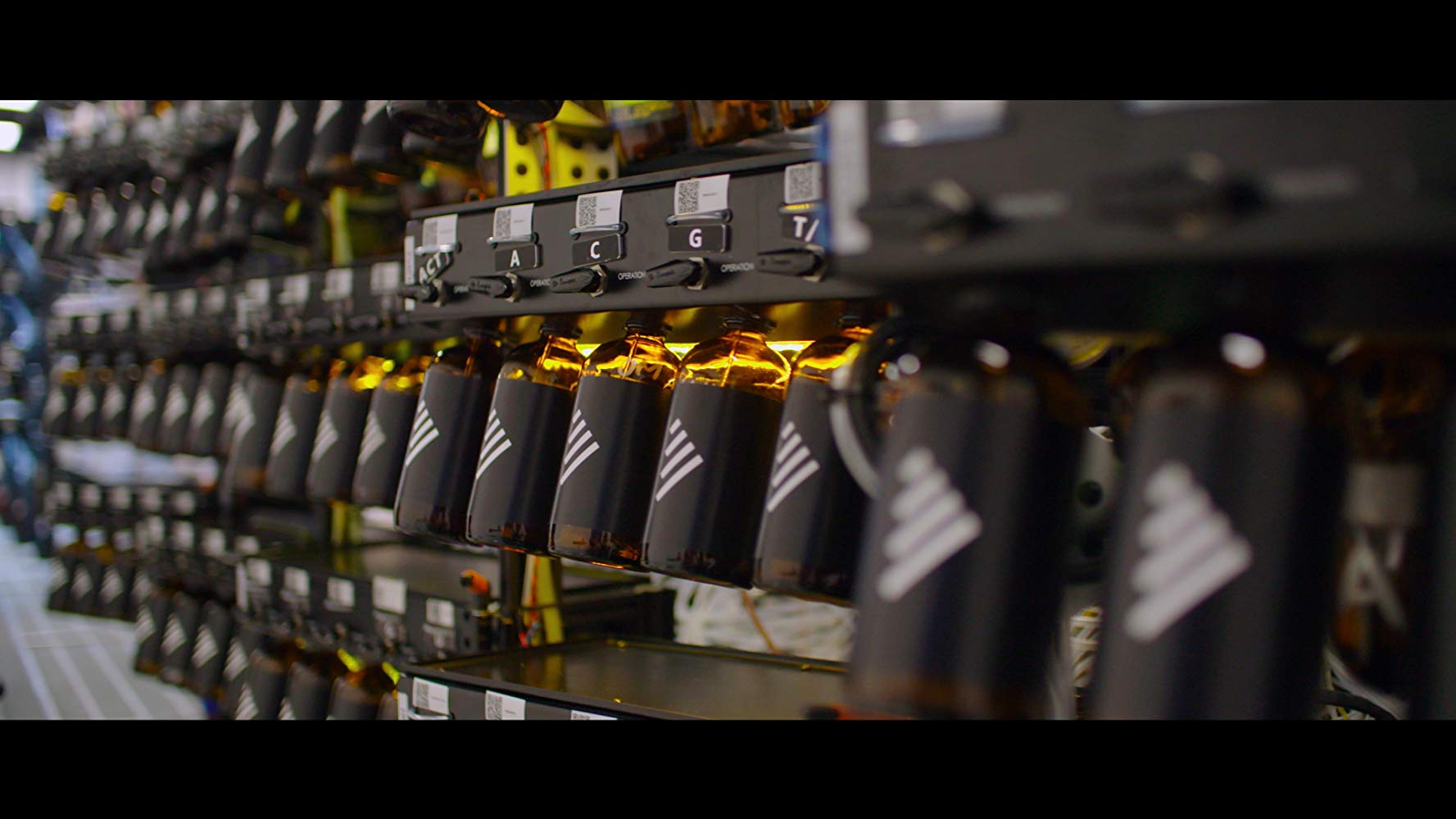
Bolt:
That's another thing. Metaphors can be really helpful, but I think I wanted people to feel like this is real. It's not like a little scissors floating around cutting DNA, there's this actual molecule and this is what it really looks like. This is as much as we know about how this really works, even though you can't see it. That was important. I wanted to transport people into this microscopic world. And then the assembly line thing was totally, that just sort of emerged organically. We'd interviewed Hank Greely who's a bioethicist at Stanford. That was an analogy that he made, to give a sense of how important CRISPR is in this historical arc of biotechnology. And comparing to other technological revolutions, he said, "I think of this as the Model T." Then we were like, "Wow, that's a really cool comparison." And we filmed with this company Synthego which basically is the assembly line for CRISPR. They take these chemicals and mix it together and make the molecules that can cut up DNA and they do it on this crazy scale. We filmed with them and then we interviewed Hank and he made that analogy. And we got that idea in the edit room like, "Oh, what if we brought that to life," and our associate producer did a lot of archival research, dug up this amazing footage of the Ford assembly line and then we just found these cool parallels.
Kellerman:
That worked really well.
Bolt:
Yeah, I loved that sequence. Glad you liked it.
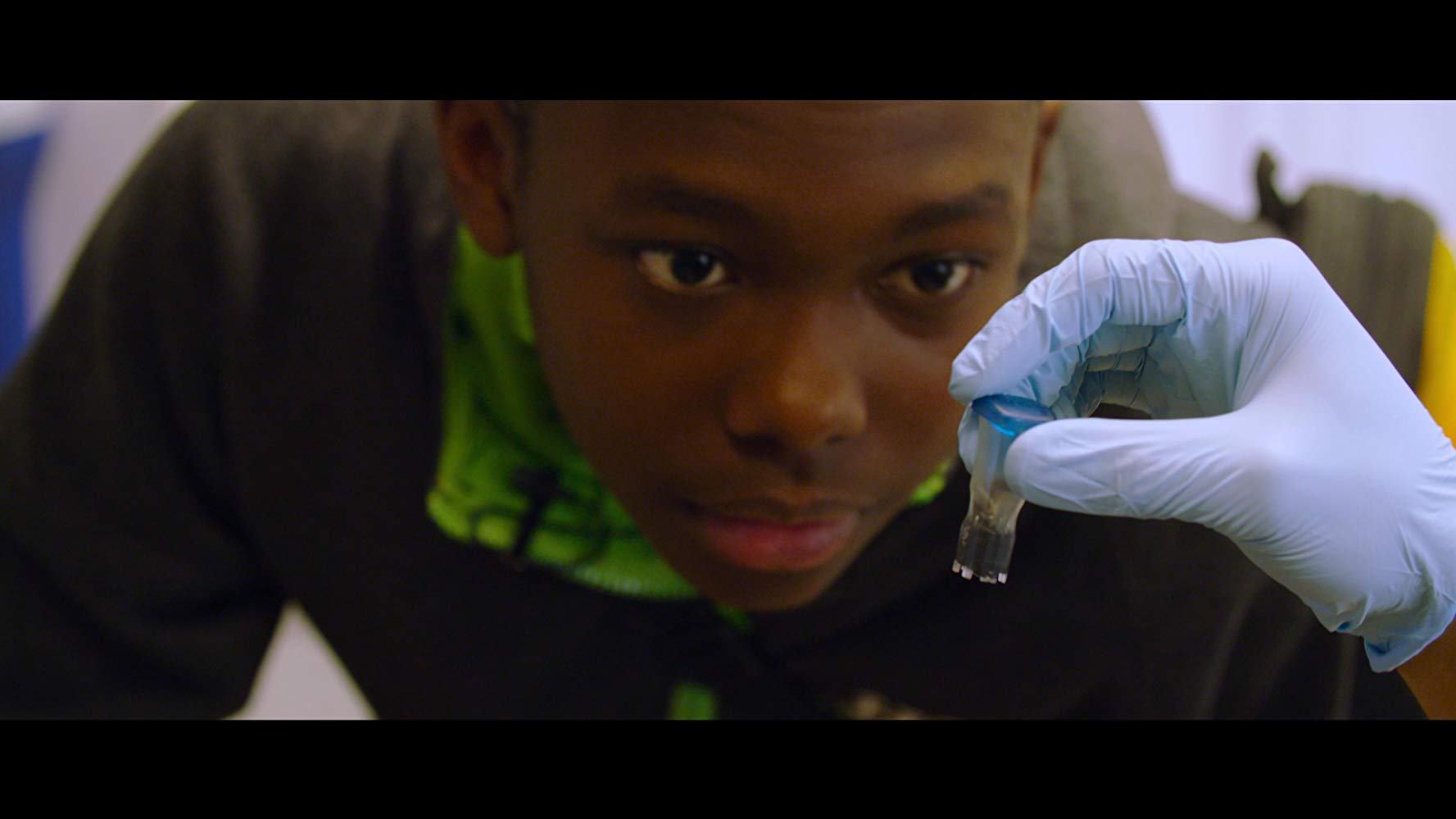
Kellerman:
How did you find the subjects, like David-
Bolt:
David, yeah.
Kellerman:
... the little kid with sickle cell anemia and the little girl with albinism. Patients of some of the doctors that you spoke with or-
Bolt:
Yeah, David is amazing. That was actually Meredith, our producer who's standing over there. That actually came... we'd already started editing before we found David. We knew we wanted something to bring the potential for good, bring that part of the story to life. And we thought sickle cell was, sickle cell is one of the first things that's really, there's actually already in clinical trials. They're close, this could really happen and it's one of the first things that's getting movement. And it's also a disease that hasn't gotten as much attention as it deserves really, I believe. It's certainly one of the most common, if not the most common, genetic diseases in the US. There's, I think, 100,000 people in the US and there's like 300,000 people in sub-Saharan Africa born every year with this disease. It's very serious. I think people don't realize how serious it is, so we wanted to bring some attention to that. Meredith called up every hospital and lab that was doing work on this and tried to connect us. What we actually specifically wanted was someone who was part of the research. So David's actually donating his blood to Matt Porteus' lab at Stanford.
Kellerman:
That's right. I remember the blood that they were packing up to send off to the lab.
Bolt:
They're actually using David's cells to test CRISPR in the lab in a dish, they're able to take David's cells and fix it, fix the mutation. To do it in a patient, they have to do it at a bigger scale so David still has the disease. There was something very powerful to me about the idea of someone being able to look through a microscope at their own cells that had been CRISPRed, which was what we ended up being able to do. But it was not an easy thing to find that one person. Then the fact that David is just this amazing human being, that's just one of those things you can't plan for, we just got-
Kellerman:
That's why I was curious about him, "How did they find this kid?" Is it indicative of a lot of what is going on with CRISPR, but he's really good.
Bolt:
He's amazing, and he's so thoughtful and he's so smart. Then the other family actually we found through an article because Ethan, Ethan Weiss, which is Ruthie's Dad, the girl with albinism, he actually is a scientist.
Kellerman:
That's right, yeah.
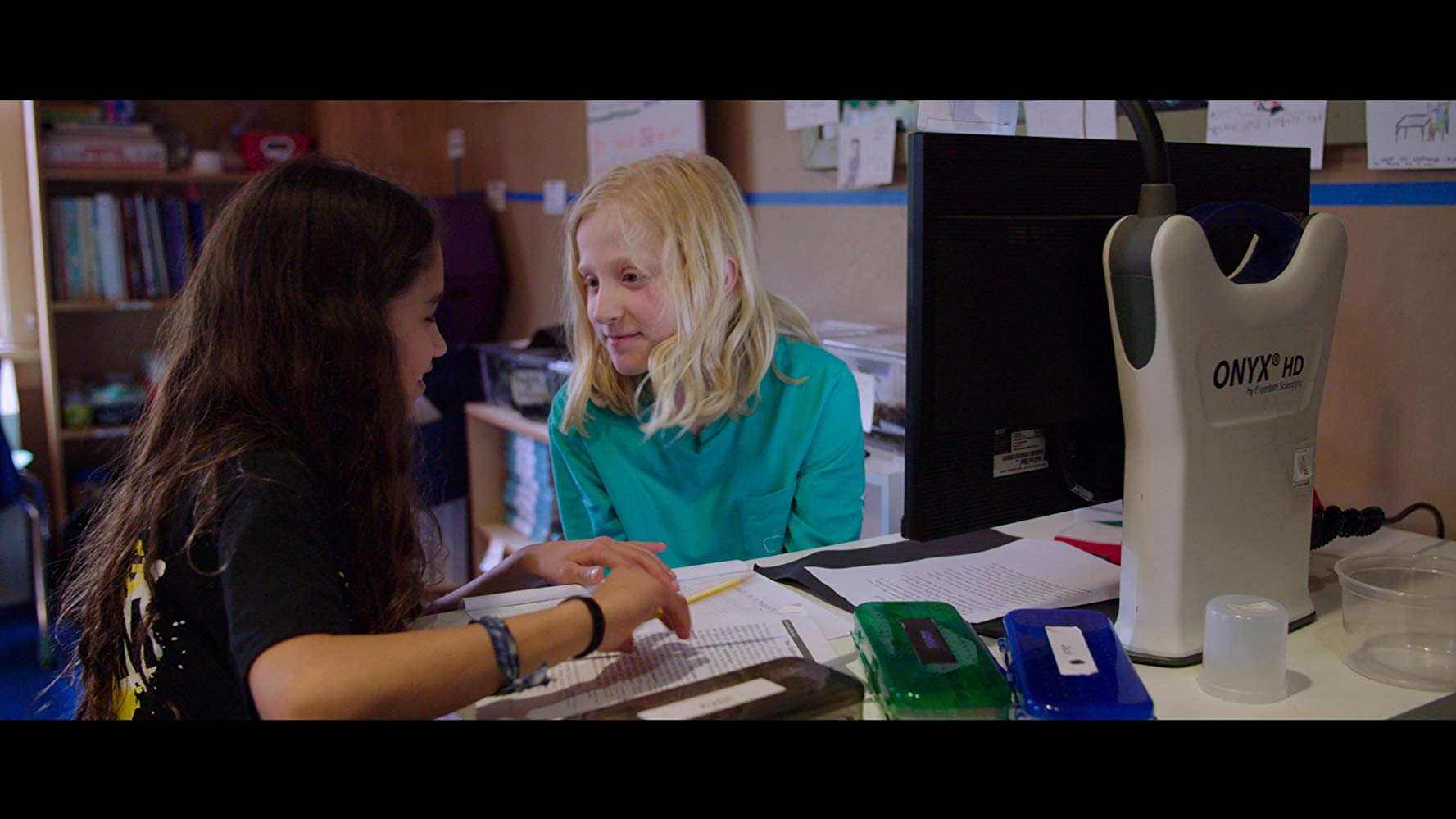
Bolt:
He's not doing CRISPR, but he does stuff with genetics, so he knows about it from that side. But he's pretty engaged with these conversations, these early debates about where we draw the line, so he had been in an article. In the film, we have that Twitter thing, so that was like a tweet event when that happened and he responded and some other people jumped in. It was like an online debate and that led to an article and then I reached out to him. They were amazingly open to turn over home videos. I just can't thank them enough.
Kellerman:
Because that's another, I'm sure, like a gold mine for you, like, "Oh, wow, cool. I have all this other stuff to draw from." What are your personal thoughts on altering the genome and all the possible implications?
Bolt:
After our screening at the Q&A, I don't know if you were there, but one of the last questions, the last question I think was someone asking like, "What would you do to make the perfect director," which I thought was pretty great. Working on this film, it really made me think a lot about diversity and all our differences that add up to the amazing thing that is humanity. The idea of all of us being the same is really sad and depressing. And also it would be a terrible thing for civilization. So I think, in that sense, people talk about engineering the perfect baby or the perfect athlete. I think that's really just a specious idea, it doesn't seem like that there really is a perfect anything, certainly not a perfect filmmaker.
Kellerman:
And there's going to be possible ramifications any time you're doing that too, but then there's the other side of it, like with the pigs, that are, potentially harvesting organs and stuff so there's that upside. It would be hard, I guess, you have been in this world for so long, I was curious ethically where you stand. Clearly, you don't want us all to be homogenized.
Bolt:
The other thing I would say is, I don't want it to get lost that there is tremendous potential for good. I think it's easy to focus on the scary stuff, and it's important to worry about the scary stuff so it doesn't happen. But I think one of the scientists in our film says, "Doing nothing is not a great option." When you're talking about serious diseases, when you're talking about climate change-
Kellerman:
Right, that's unethical also.
Bolt:
... that's unethical too. To me, if I had to boil it down to one word, it would be "humility". We want to make the world a better place. We want to cure diseases. We want to alleviate suffering, but let's just make sure we do it in a way where we're humble about what we know and what we don't know, and also what the impact could be on other people and on the planet and proceed with caution and humility.
Kellerman:
Common sense.
Bolt:
Common sense.
Kellerman:
Humility though, that's a great take away. Thank you so much for your time!
Bolt:
Thank you so much.
Kellerman:
I really appreciate it.
